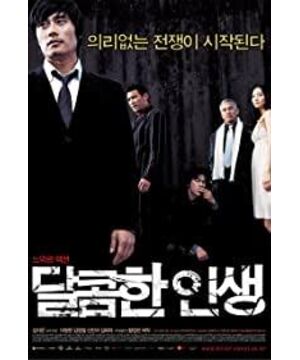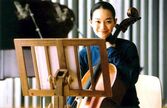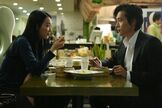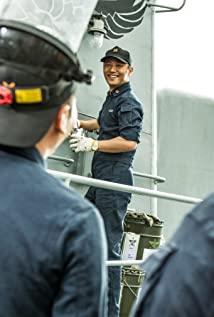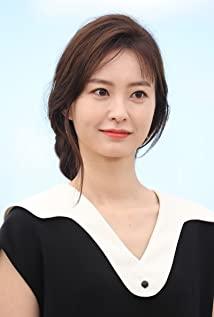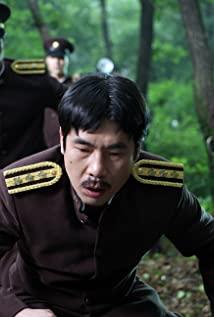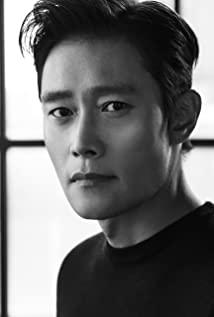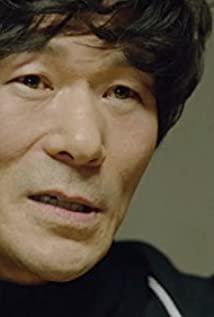Shadow ending fable:
In the late autumn night, a disciple woke up from his sleep and cried. The master asked the disciple,
"Have you had a nightmare?" "No." "Did you have a sad dream?" "No, I had a sweet dream" "Then why are you crying?"
The disciple wiped away the tears and replied softly.
"Because that sweet dream can't come true"
The director said that the narration at the end is to echo the Buddhist fable of the opening "wind and tree". It also fully summarizes the life of the movie protagonist Shan Woo.
The English play name for Sweet Life is A Bittersweet Life. At the beginning of the story, Sun Woo eats a chocolate cake. The chocolate is delicious but sweet and bitter, echoing the metaphor of the play name. Although Shanyu, as the head of the hotel, looks glamorous on the surface, all of this is because he has lived a dog-like life for the past seven years and obeyed the boss. And because of his poor expressive personality, it is easy to misunderstand others, so I have lived this lonely and depressive life all the way. This play cleverly uses the characters in the background of the gang to bring out a lot of helplessness and restraint in real life. It is sweet to have an ideal or dream, but the process of realization is often full of suffering and costly.
Han Ying's "Sweet Life" experience! ! A film and television work with rich meanings/metaphors and the role Jin Shanyu.
I think Sun Woo is not just falling in love with the heroine. What I feel is that contacting the heroine made him discover the possibilities beyond his current life (the fable at the end likened this to a sweet dream)! So when the boss forced himself to admit his mistake, Shanyu refused, because he just wanted to break through his own situation and felt right. The boss may think that he is in love with the heroine, so he didn't declare that the heroine betrayed him. In fact, I don't think it is exactly. The heroine only inspired Shanyu to be an enlightenment figure of this possibility. His pursuit of protecting the heroine (little wolf dog) is also to protect this possibility of himself. Following the hostess to watching her play the cello, Sun Woo first came into contact with the life of improper gangsters. It was so interesting. He who is usually cold and self-explanatory, smiled from the bottom of his heart, and hoped that in the future he might also be able to be like what he likes. People live this life.
But it is not easy to get out of this underworld identity! ! So in the end, Sunwoo couldn't escape his fate even though he succeeded in revenge. The camera finally switched to Sunwoo happily punching with his own reflection, which meant that he wanted to escape from his frame. Fighting with the organization, in addition to revenge, is to liberate one's own destiny. At the beginning, I took the gun and confronted the boss, put down the raised grab, and then looked at how sad I was reflected in the glass wall (different from the opening scene, I was satisfied when looking at the mirror at that time), in order to match Fighting for his fate, he decided to shoot and kill the boss. This experience is what I felt after watching the following interview with the director.
——————————————————————————————————————————— Interview source: http: //koreanfilm.org/kimjw.html
Director Jin Zhiyun interpreted the meaning of punching at the glass wall!
Question: So, what is the final blow of Li Bingxian?
Answer: This is the key link in expressing the nature of the character. It is an effective way of expression that alludes to the inner self of the character. Sun Woo obtains his own knowledge from other people's views of himself. He thinks that he is only reflected in the eyes of others, and he believes that he is like that. He is a man who has never questioned his character.
In the last scene, I want to express through Shan Woo's reflection with my own fist: "In the battle with myself, he lost." If you look closely at the ending, you will find that his reflection disappears first, leaving only the glass. And panoramic views of the outside world.
———————————————————————————————————————————
I remember that the director said that only Li Bingxian can play this role. It speaks for itself, is silent, cold, and introverted, but can express all these inner emotions to the audience through his own existence. The director also gave him a lot of close-ups without lines to let him play. Li Bingxian also lived up to the director's expectations, perfectly interpreting the complex mood of the role. He has also won high recognition from many famous international film festivals through this film, paving the way for himself to venture into Hollywood in the future.
View more about A Bittersweet Life reviews


